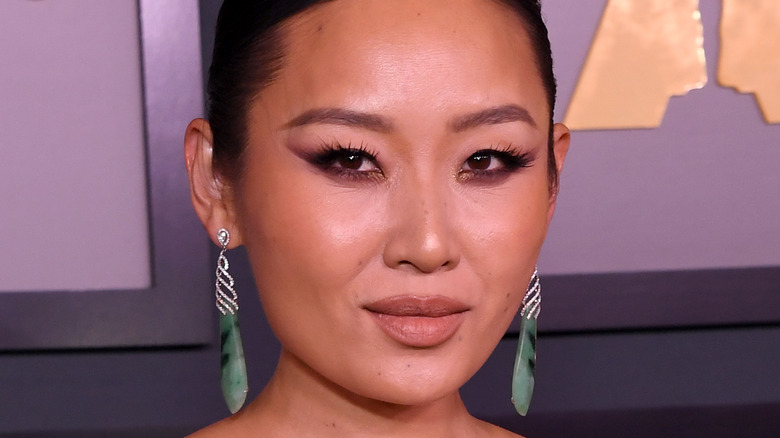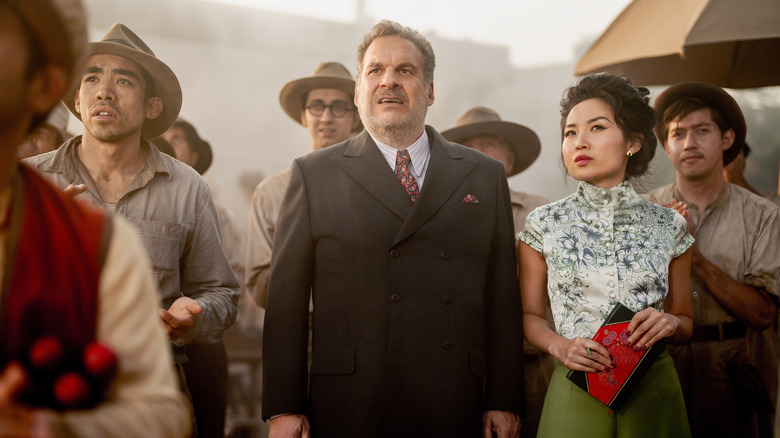Babylon Star Li Jun Li Weighs In On Whether Or Not Hollywood Changed For The Better - Exclusive
Writer-director Damien Chazelle's new movie "Babylon" is set in 1920s Hollywood and chronicles a critical moment in the history of cinema: when film was transitioning out of the silent era and into a new age of motion pictures with sound. According to the New York Times, the main effort to introduce sound into movies happened over a four-year period, from 1926 to 1930, with musicals and gangster films providing the initial wave of releases that incorporated the then-revolutionary technology.
While "Babylon" packs a lot of story into its three-hour running time, one particular scene stands out: As up-and-coming actress Nellie LaRoy (Margot Robbie) tries to film her first scene in a sound film, one mistake or malfunction after another — most of them involving the recording of her dialogue — forces the director and crew to shoot take after take, eating up time and money.
The film touches on the idea that a number of actors who became stars or at least had steady careers in silent films were unable to make the jump to the age of sound. According to the Daily Telegraph, superstars of the era such as Mary Pickford, Douglas Fairbanks, John Gilbert, and Clara Bow — the latter of whom was a partial inspiration for Robbie's character in "Babylon" — failed to successfully extend their careers into talkies.
Bow even said, "I hate talkies," claiming that they hindered both her physical and facial expressiveness, while Charlie Chaplin wrote in 1931 that movies with sound had "a limited field." Did the advent of sound in motion pictures harm the medium, as "Babylon" perhaps subtly suggests, or was it ultimately a boon for cinema? Looper put that question to Li Jun Li, who plays the mysterious singer Lady Fay Zhu in the movie.
Did sound hurt the motion picture industry?
While many actors of the time had worked in theater and could handle speaking dialogue in movies with relative ease, others (per the Daily Telegraph) were more reliant on movements and facial expressions — even overstated ones — to portray emotion on the screen. Some even needed the filmmakers to call out directions from behind the camera, which created problems for them as sound swept the industry.
Yet Li Jun Li told Looper that she believes the change from silent to sound films — like other advances in the medium — was, in the long run, beneficial to the movie business. "I think it changed things for the better, although perhaps not for the actors who struggled to make the same transition," said Li in our exclusive interview. "The revolution or evolution of film ... it will always continue to change, just like how, in the last few years, the streaming options have blown up, obviously due to the pandemic."
There's no question that film has changed extensively in the 127 years since the first movie was screened for paying customers by the Lumiere brothers in Paris (via History). But even with the art form facing its most serious challenges yet in the past few years — thanks to COVID and the rise of streaming — Li is hopeful that her new movie and others like it will always draw people back to the big screen.
"We hope that a film like 'Babylon' will inspire people to go back to the cinemas," she said, "and appreciate moviemaking [and] enjoy the special event in which we go to the movie in a massive theater with audience members next to us."
"Babylon" is playing exclusively in movie theaters — with sound and everything — now.

